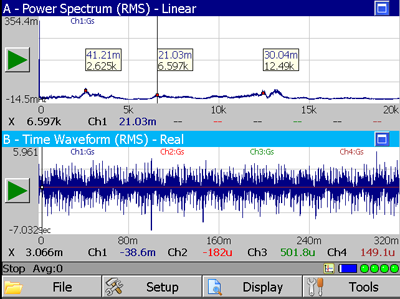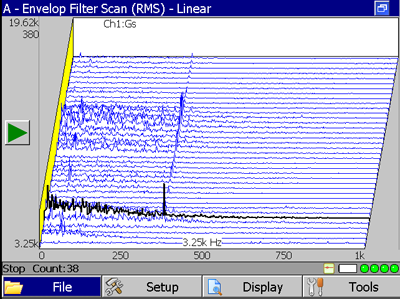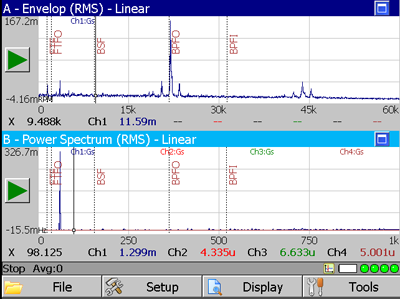Technology & Service
Technical tips
Finding bearing fault frequencies by envelope filter scanning
Envelope spectrum has been widely used to find out the bearing fault frequencies at the early stage of damage. However, if one does not set the envelope filter appropriately for his measurements, the envelope spectrum may fail to show the fault frequencies clearly. Benstone Instruments uses a special approach called "Envelope filter scanning" to reduce the uncertainty of envelope spectrum measurements . As you conduct this approach, the analyzer will measure sets of envelope spectrum with different envelope filters ranging from 1kHz to 20kHz, and then show them on a 3D waterfall plot. From this 3D waterfall plot you can find the best filter band for conducting an envelope spectrum for a bearing. If there are no fault frequencies found on the 3D plot, one can be very sure that this bearing is still in good conditon.


